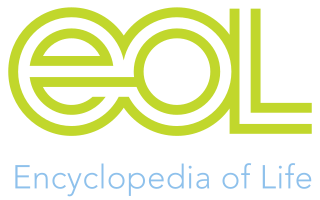 W
WThe Aragonese Wikipedia or Biquipedia is the Aragonese language edition of the Web-based free content encyclopedia Wikipedia. The project was started on 21 July 2004. As of 1 April 2015, this edition has over 30,000 articles and is the 91st largest Wikipedia by number of articles. The Aragonese Wikipedia is classified in the 4th place of Wikipedias by articles per population.
 W
WThe Asturian Wikipedia is the Asturian language edition of Wikipedia started in July 2004. As of December 8, 2015, the Asturian Wikipedia has more than 45,000 articles, making it the 77-largest Wikipedia. It also has 30,432 registered users, most of them global accounts created automatically, since the monthly active users amount to 94 of which nine are administrators. It has been edited about 999,632 times. The Asturian Wikipedia is classified in the 15th place of Wikipedias by articles per speaker population.
 W
WEnciclopedia Salvat, long title Diccionario Enciclopédico Salvat Universal is a Spanish-language encyclopedia compiled and published by Editorial Salvat, a well-known house in development and publication of dictionaries and reference works on various levels.
 W
WEnciclopedia Universal Micronet is a digital encyclopedia in Spanish language created in 1995. The 2010 version contains more than 185,000 articles.
 W
WThe Encyclopedia of Life (EOL) is a free, online collaborative encyclopedia intended to document all of the 1.9 million living species known to science. It is compiled from existing databases and from contributions by experts and non-experts throughout the world. It aims to build one "infinitely expandable" page for each species, including video, sound, images, graphics, as well as text. In addition, the Encyclopedia incorporates content from the Biodiversity Heritage Library, which digitizes millions of pages of printed literature from the world's major natural history libraries. The project was initially backed by a US$50 million funding commitment, led by the MacArthur Foundation and the Sloan Foundation, who provided US$20 million and US$5 million, respectively. The additional US$25 million came from five cornerstone institutions—the Field Museum, Harvard University, the Marine Biological Laboratory, the Missouri Botanical Garden, and the Smithsonian Institution. The project was initially led by Jim Edwards and the development team by David Patterson. Today, participating institutions and individual donors continue to support EOL through financial contributions.
 W
WEtymologiae, also known as the Origines ("Origins") and usually abbreviated Orig., is an etymological encyclopedia compiled by Isidore of Seville (c. 560–636) towards the end of his life. Isidore was encouraged to write the book by his friend Braulio, Bishop of Saragossa. The Etymologies summarized and organized a wealth of knowledge from hundreds of classical sources; three of its books are derived largely from Pliny the Elder's Natural History. Isidore acknowledges Pliny, but not his other principal sources, namely Cassiodorus, Servius and Solinus. The work contains whatever Isidore, an influential Christian bishop, thought worth keeping. Its subject matter is extremely diverse, ranging from grammar and rhetoric to the earth and the cosmos, buildings, metals, war, ships, humans, animals, medicine, law, religions and the hierarchies of angels and saints.
 W
WThe Enciclopedia universal ilustrada europeo-americana is a Spanish encyclopedia. It comprises 72 volumes published from 1908 to 1930 plus a ten-volume appendix published 1930–33. Between 1935 and 2003, 33 supplemental volumes were published plus an index, another A–Z appendix, and an atlas, for a total of 118 volumes. Each of the volumes vary in length. It is currently the longest printed encyclopedia with 105,000 pages and 165,200,000 words as of 1986.
 W
WFocus is an encyclopedia first published in Swedish in five volumes 1958–1960, later extended with additional volumes, republished in several editions, and translated to Danish, Norwegian, French, Portuguese, and Spanish. Based on inspiration from the richly illustrated 1947 edition of the American World Book Encyclopedia, the plan for Focus as conceived by Sven Lidman was based on two principles:a set of highly instructional and internationally reusable illustrations should be produced first, to which text could be written later in various languages, and the basic encyclopedia should be compact to which specialized add-on volumes from a series could be combined, making it easier to cover different market segments.
 W
WThe Llibre de les Dones is a book that was possibly written between 1387 and 1392 by Francesc Eiximenis in Catalan in Valencia and dedicated to Sanxa Ximenes d'Arenós, countess of Prades.
 W
WLo Crestià was an encyclopaedia written in Catalan, that was sponsored by the king Peter IV of Aragon and written by Francesc Eiximenis between 1379 and 1392. The first book and the half of the twelfth one were printed by the German printer Lambert Palmart in Valencia in 1483 and 1484.
 W
WTree of Science is one of the most extensive and characteristic works of Ramon Llull, written in Rome between 1295 and 1296. It is a version in encyclopaedia format of General Art or Ars magna aimed to non-university public. It has recourse to an analogy common in it: the organic comparison, in which each science is represented by a tree with roots, trunk, branches, leaves and fruits. The roots represent the basic principles of each science; the trunk is the structure; the branches, the genres; the leaves, the species; and the fruits, the individual, his/her acts and his/her finalities. This vegetal allegory shows the influence of Aristotle.
 W
WThe Spanish Wikipedia is a Spanish-language edition of Wikipedia, a free, online encyclopedia. It has 1,641,526 articles. Started in May 2001, it reached 100,000 articles on March 8, 2006 and 1,000,000 articles on May 16, 2013. It is the 9th-largest Wikipedia as measured by the number of articles and has the 4th-largest number of edits. Also ranks 10th in terms of depth among Wikipedias.